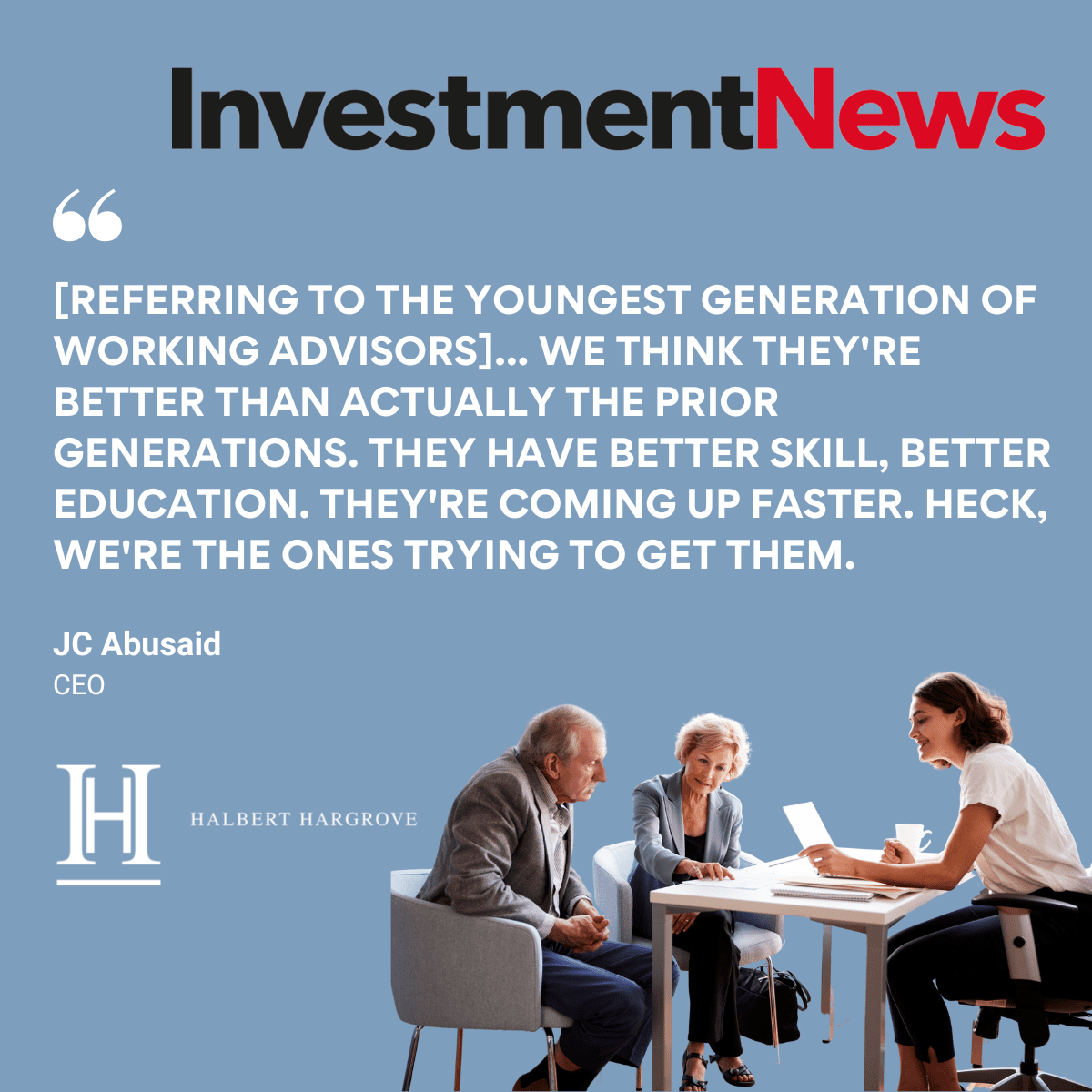By Josh Welch, in InvestmentNews, featuring JC Abusaid, CEO/President
With several thousand advisors expected to retire in the next five to 10 years, often at the forefront of firm owners’ minds are recruiting and retaining successors. And as panelists at RIA Activate California discussed on Tuesday, there are various ways to do that.
The traditional approaches to recruiting and developing upcoming young advisors are no longer sufficient, and this new cohort brings a fresh perspective and unique skillsets to firms.
It’s important to note, in family businesses, G1, G2, G3 and G4 are often used to label generations. G1 are essentially the founding owner(s) and are normally considered as baby boomers; G2 and G3 are the planned or potential owners or 36-50 in age, while G4 are usually considered interns or the most young advisors at the firm between 19-35 in age.
“We are developing our G4 and they’re great,” said JC Abusaid, CEO of Halbert Hargrove, referring to the youngest generation of working advisors. “We think they’re better than actually the prior generations. They have better skill, better education. They’re coming up faster. Heck, we’re the ones trying to get them.”
One of the themes during the panel was the need to dispel the misconceptions about the next generation.
“Every generation has been criticized for being lazy, entitled, and self-involved. These are the same criticisms that have been leveled at young people for centuries,” said Alanah Phillips, NextGen Advisory Task Force co-chair at the American College of Financial Services, who also sponsored the event.
“Whether it’s the internet or ChatGPT, these are just the downfall of the generation coming after us. This is important because some of this is head trash of our own,” she added.
Tamara Williams, a transition consultant, emphasized the importance of transparency and flexibility in attracting top talent.
“Be honest with that next-gen generation about your vision and legacy,” she said. “A lot of times they do value honesty and transparency.”
Williams also suggested advisors be flexible.
“Your next gen [may] come in and they have quicker ways of doing things. They come with efficiency and still get you the same results.”
Additionally, RIAs should focus on having a people-centric approach by focusing on the individual’s well-being and professional development, not just the business goals.
Williams also believes in the power of investing in people by providing opportunities for growth, training, and education to help next-gen talent develop their skills.
Abusaid pointed to his firm’s comprehensive internship program that allows them to contribute meaningfully in various roles from their first day.
The program has also helped to recruit and promote their people from within, he said.
“We focus on our culture,” he said. “If you think you don’t have one, you do. It’s just a matter of digging deep, figuring it out, documenting as much as you can, and then making sure it develops.”
Adapting sales and business development strategies is another critical area for advisors to address.


